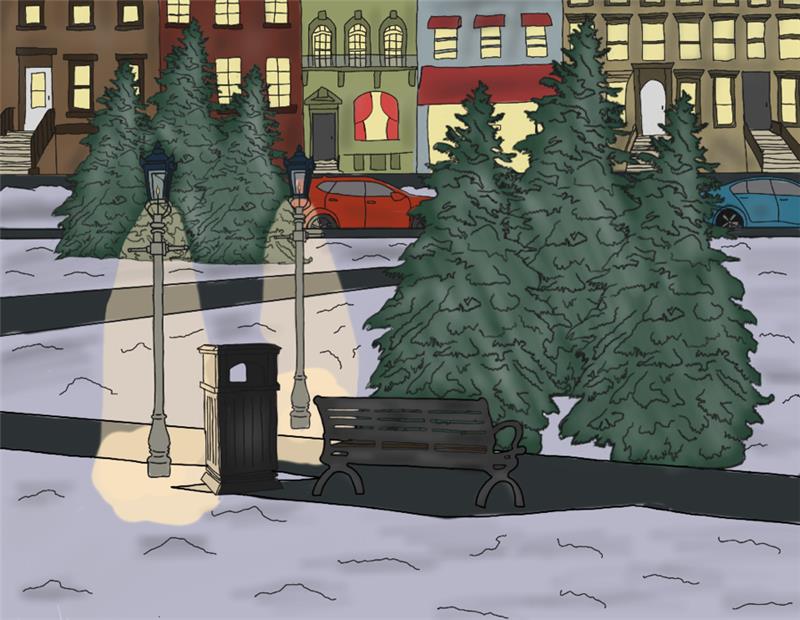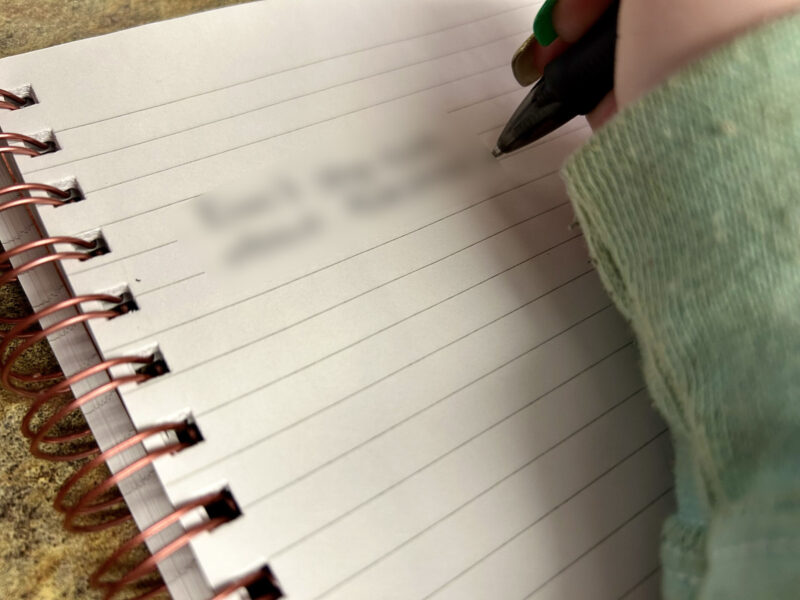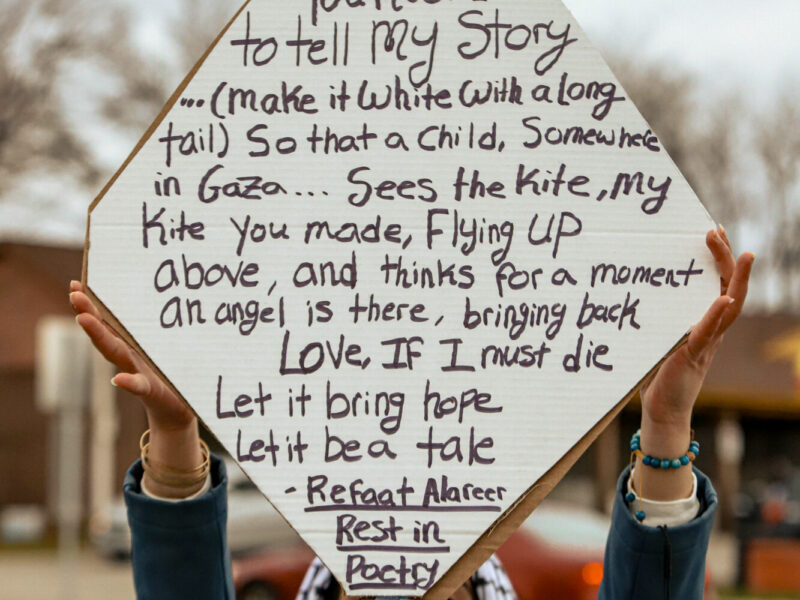Karen Savoy / Sputnik Photography
Graphic of the month.
If you had asked me one year ago, I would have told you that I am a proud Canadian. I was born and raised in this country. This is where I study, work and get together with my friends, family and peers. This is the only place where I know my way around, physically, culturally and politically, and I can comfortably call this nation my home.
But this year, I am finding it harder and harder to maintain this sentiment, especially as I scroll through news articles and more Instagram posts presenting the brutal reality of the people currently in Gaza. I hear gut-wrenching stories from my Palestinian friends about their family members overseas, while the Canadian government idly stands by.
Samar Alkhdour is a Palestinian mother living in Canada. Her 13-year-old daughter, Jana, was diagnosed with cerebral palsy and was living in Gaza with Alkhdour’s in-laws, according to CBC. For the past several years, Alkhdour has been dealing with her daughter’s immigration process to Canada so Jana can live with her mother safely. The Global Affairs Department finally approved Jana’s application in January — but they were two weeks too late. She already died from malnutrition and a lack of medicine in Gaza since the Israeli government is intentionally withholding supplies.
This isn’t the first time Canada refused to step in while they could.
Last year, the Manitoba government refused to search landfills for remains of missing Indigenous women allegedly victim to a serial killer, even when there were numerous repeated calls for action nation-wide and report after report confirming the search’s physical and financial feasibility. Considering Canada’s ongoing mistreatment of Indigenous Peoples after the recent discovery of mass unmarked graves outside residential schools, the traumatizing displacement of generations of children and the closure of the last residential school just in 1996, this is a highly neglectful and disturbing move.
This is a recurring theme throughout Canadian history. In 1942, Canada housed Japanese internment camps “in the name of national security” and only formally apologized with an offer of compensation in 1988. And up until 1923, Chinese immigrants paid a head tax when they entered the country — a policy that did not apply to Europeans.
It is horrendous to compare tragedies, however, it’s also important to note the way certain struggles are viewed differently than others in Canada. For example, the Canadian government was quick to send aid to Ukraine when Russia first illegally invaded the country in 2022, including $4 billion in military assistance. Canada continues to send aid to Ukraine to help it “stabilize its economy.”
After the trial in the International Court of Justice where South Africa brought forth genocide allegations against Israel, I wondered how proud South Africans must be that their country recognizes injustice and does not hesitate to address it, at least in this case. Throughout the legal process, South Africans referred to their own previous apartheid laws, which were adopted from the Indian Act in Canada. Now, Nicaragua is filing a case against Germany for contributing to the genocide of the Palestinian people. The court dates are undecided, but at times like this, my disappointment in my home country grows deeper and deeper.
“Support for the process and the institution does not mean, per se, that we support the premise of the issue brought forward by South Africa,” Prime Minister Justin Trudeau told reporters in January about the ICJ.
Shame might be a better description. I am ashamed of our poor leadership and incompetence to learn from our cruel, racist history. I am ashamed that I cannot be proud of a country that was founded on immigration because it fails to respect and value human life — unless those lives are white, of course. I am ashamed of our cowardly hesitation to take a stand and act quickly in recognizing and rectifying inhumane treatment or war crimes. Why aren’t you?
This article was originally published in print Volume 23, Issue 7 on Thursday, March 7.




